Su Daqiang, suffering from Alzheimer's disease, forgot to go home, but always remember to buy a workbook for Mingyu. The old man who came out of the film and television drama "It's quite good" can still mobilize the audience's emotions so widely.
Then return to reality, when the aging is accelerating, there are more and more elderly people with cognitive diseases, especially those over 65 years old, the proportion of the disease is about 10%, how should the elderly family and old-age care institutions reduce cognitive problems? Care risk?
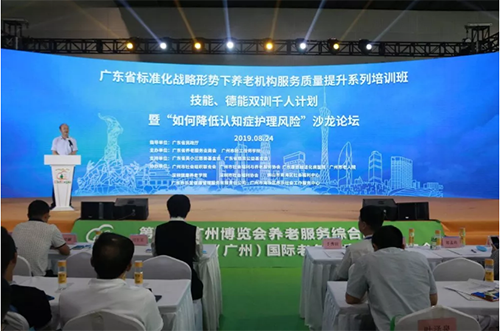
On the afternoon of August 24th, the Guangdong Province Service Industry Chamber of Commerce held the "Guangdong Province Standardization Strategy Situation, the Quality of the Service for the Aged Organizations, the Training Course for the Quality of the Class, the Deen Shuangxun Thousand People Plan and the How to Reduce the Risk of Cognitive Care" Held in the A Zone of the Old Expo Forum.
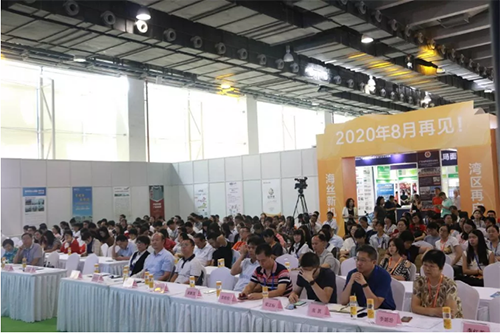
Yu Xiutian, researcher of the Social Welfare and Charity Branch of the Civil Affairs Department of Guangdong Province, Xu Xiaoling, the president of the Guangdong Pension Service Industry Association and secretary of the Party branch, attended the forum and delivered a speech. Yan Shenghong, dean of the Guangzhou Senior Citizen's Office, and the Party Committee of the Guangzhou Senior People's College Secretary Deng Shixian, Liu Lianqi, Dean of the Guangzhou Municipal Civil Affairs Bureau Psychiatric Hospital, Zheng Mengchuan, Secretary of the Social Welfare and Pension Service Association of Guangzhou, Mo Sijie, Dean of the Hong Kong Jockey Club Shenzhen Rehabilitation Association, Liang Hanbiao, Chairman of Jiangmen Yinye Pension Planning Co., Ltd., Zhongshan Liu Jun, Chief Physician of Sun Yat-sen Hospital, affiliated to the University, Zhou Chongke, Guangdong Kangci Medical Management Co., Ltd., Li Hua, deputy dean of Guangdong Kangci Brain Degenerative Hospital, and other 200 senior care institutions in the province were invited to attend the forum. . The forum was hosted by Chang Guangcai, vice president of the Guangzhou Senior Citizens' Home.
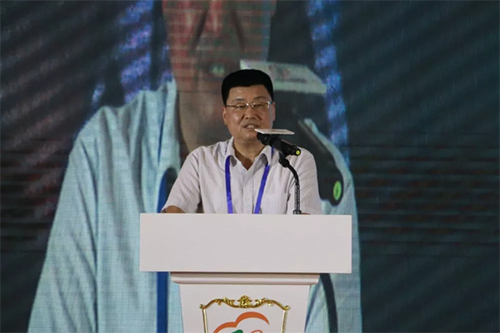
Yu Xiutian, a researcher at the Social Welfare and Charity Branch of the Civil Affairs Department of Guangdong Province, said in his speech that the forum is very meaningful. It conforms to the new requirements of the new era and the new situation, and is suitable for the development of the old-age care industry, especially the old-age care institutions. The policy orientation of high-quality development is also the practical need for the old-age institutions to standardize management and prevent risks.
Because for the elderly with Alzheimer's disease, it is the key service target for the old-age care institutions to provide basic old-age care, and it is also the rigid old-age needs of the family, society and market. If the institution can better understand and master the elderly with cognitive syndrome The professional care and management methods of nursing care will help patients' families to reduce the heavy burden of care and help them get out of the work of social construction.
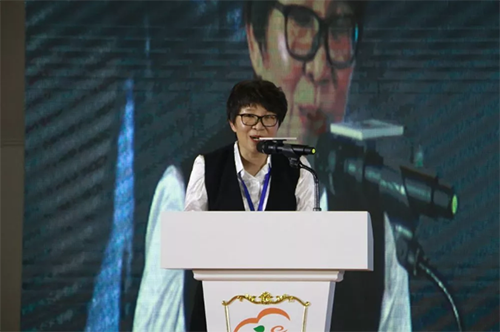
Xu Xiaoling, president of the Guangdong Provincial Pension Service Industry Association and secretary of the Party branch, gave a brief introduction to the Chamber of Commerce. She said that since its establishment in 2016, the Chamber of Commerce has absorbed more than 200 member units. As a bridge between government and enterprises, we must accurately grasp the policy orientation, effectively integrate the resources of the aged care industry, and actively carry out various industry exchange activities. All the measures have been widely recognized by the industry peers. At the beginning of this year, the Chamber of Commerce was awarded the first in Guangdong Province. 5A level pension industry social organization.
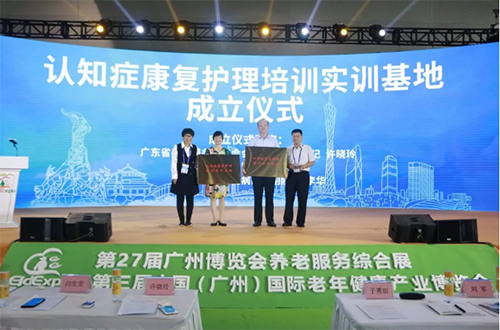
In addition, in this forum, the Chamber of Commerce also established a training base for cognitive rehabilitation training, Guangzhou Municipal Elderly Hospital and Guangdong Kangci Brain Degeneration Hospital as training bases for the rehabilitation of nursing care for the province. The caregiver provides the venue, as well as a series of popular science forums for the general public to promote knowledge about cognitive diseases, improve everyone's awareness, and enable the elderly to have a healthier and happy old age, and alleviate the care pressure of family members.
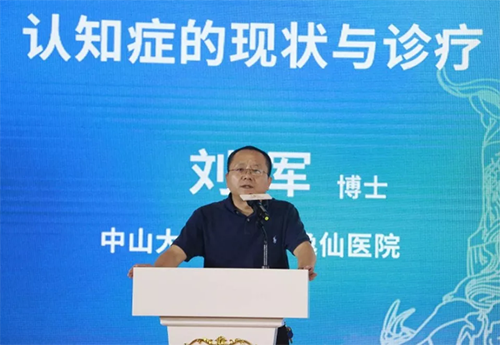
After the inauguration ceremony, three cognitive syndrome experts gave speeches on topics related to cognitive disorders. Among them, Liu Jun, chief physician of Sun Yat-sen Hospital affiliated to Sun Yat-Sen University, professor of neurology, and chief medical scientist of Guangdong Cixi Brain Doctor Group, mentioned in the keynote speech on the status quo and diagnosis of cognitive diseases that there were about 47 million dementia patients in 2016. More than the population of Spain, by 2050, it is expected to exceed 131 million, and dementia has become a global crisis. China is the country with the largest number of dementias and the fastest growth in the world. In 2015, the number of dementia patients in China exceeded 9.5 million, accounting for 1/5 of the world's dementia. The prevalence of dementia will increase by 336%, reaching 16 million in 2030 and over 20 million in 2040.
In this regard, the team carried out the special research work of the Guangdong Brain Project AD, and actively supported and promoted the key technologies of brain science, the diagnosis and treatment of severe brain diseases, and brain-like intelligence and brain in Guangdong, Hong Kong and Macao, based on major national science and technology projects and engineering plans. Innovative development in key technologies and product development of machine interfaces.
Li Hairen, director of the Guangzhou Elderly Center for the Treatment of the Dementia for the Elderly, introduced the overview of cognitive rehabilitation and cognitive rehabilitation assessment in the keynote speech of the “Rehabilitation Intervention Model Based on Assessment”. She believes that rehabilitation intervention is significant. The meaning is that the cognition, physical, mental and social aspects of cognitive elders will be improved in all aspects; for the elderly relatives, the pressure of care will be alleviated; for service organizations, the workload of caregivers can be reduced and the risk of institutional operation and management can be reduced; For the society, the needs of the elderly for a better life have been realized.
Li Hua, deputy dean of the Kangci Brain Degenerative Hospital of Guangdong, in the keynote speech of "Safety Care for Cognitive Diseases", focuses on safety care - whole-person care, safety assessment, safety care measures, and safety care for patients with Alzheimer's disease. The problem and the detailed introduction of the first three-level brain degenerative disease hospital in China---Guangdong Kangci Brain Degenerative Hospital.
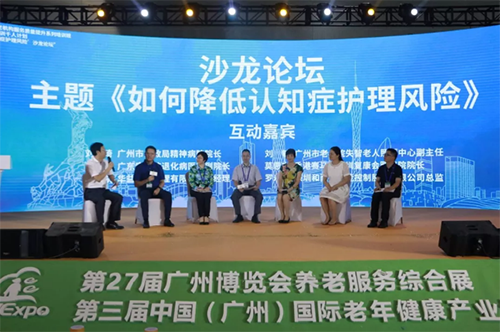
After the end of the expert speech, the “How to Reduce the Risk of Cognitive Nursing Care” was officially started. Liu Min, deputy director of Guangzhou Old People’s Home for the Dementia for the Elderly, Liu Lianqi, Dean of the Guangzhou Municipal Civil Affairs Bureau, and Kangxi Brain Degenerative Hospital of Guangdong Vice President Li Hua gave speeches on life care, mental and behavioral issues, and drug intervention. Mr. Mo Sijie, Dean of the Hong Kong Jockey Club Shenzhen Rehabilitation Association, Zhang Kai, General Manager of Huayi Health Management Co., Ltd., and Luo Yongjiang, Director of Shenzhen Hetai Intelligent Control Co., Ltd., respectively, focused on daily life cognitive training and standardization system. The intelligent care of the elderly with cognitive problems was shared and exchanged.
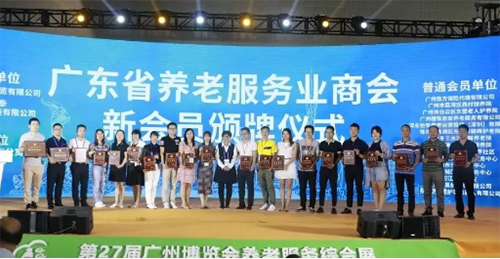
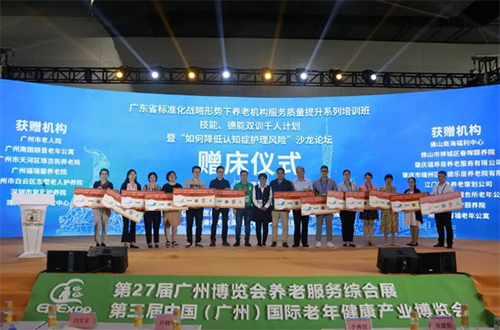
At the end of the forum, the Chamber of Commerce awarded cards to 13 new member units and held a gift-giving ceremony.
August 28-30, 2020,
We will meet again!
相关推荐
- Event Registration | The 57th China Home Expo (Guangzhou) Medical Care Home Innovation Matchmaking Conference under the Silver Hair Economy 2026-02-05
- The 2026 Xi'an New Year Silver Age Grand Gathering [Trade in Zone] offers great deals for buying mobile phones and home appliances! 2026-01-26
- For nine consecutive years, this expo has been a roaring success as the first UFI-certified professional elderly care exhibition in the Guangdong-Hong Kong-Macao Greater Bay Area. It will be upgraded and held in August 2026! 2025-12-18
- China Daily | The 10th Guangzhou Elderly Expo is scheduled for August 2026, inviting you to attend the Silver Hair Expo together 2025-11-28

